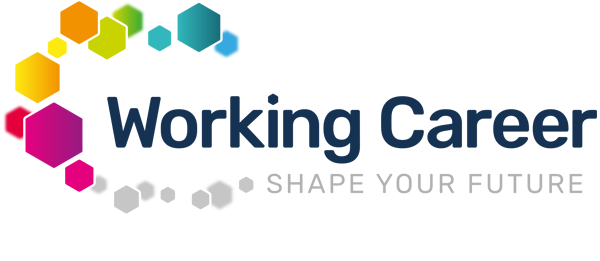Your guide to succeeding in digital interviews: Navigating the landscape.
Tips for handling online, remote and pre-recorded job interviews
If you want to excel in digital interviews, we've got you covered with this guide on navigating the landscape. With the tips and tricks provided, you can confidently approach your following virtual interview and make a lasting impression on your potential employer. So, whether you're a seasoned professional or a bit rusty in your interview skills, take advantage of this resource to help you succeed in the digital interview process. Read this guide to succeeding in digital interviews.
Traditional job interviews are gradually supplemented and replaced by online interviews in today's highly digitised era. The COVID-19 pandemic and the subsequent surge in remote working have accelerated this shift. As a professional, adapting to these changes can be challenging but crucial to your career advancement. This blog post will equip you with tips for handling different types of digital interviews: pre-recorded and remote or online interviews.
1. Pre-recorded Interviews
Pre-recorded or asynchronous interviews are when the employer sets a list of questions for you to answer in your own time. The responses are then recorded and reviewed by the hiring team.
Tip 1: Preparation is Key:
The questions in a pre-recorded interview are typically behaviour-based. Spend time reflecting on past work experiences, achievements, and challenges. This will enable you to give comprehensive, thought-out responses.
Tip 2: Practice Makes Perfect:
Use video recording tools to practice answering questions. This not only helps in honing your responses but also gets you comfortable with the camera.
Tip 3: Attention to Background Details:
Make sure your recording environment is professional-looking and distraction-free. Check the lighting and sound quality before recording.
2. Remote Online Interviews
Remote interviews happen in real time but at separate locations. They can be phone or video calls. Online interviews are generally via Zoom, Teams, or Skype. Occasionally, WhatsApp or Facetime are used.
Tip 4: Test Technology:
Technical glitches can interrupt the interview flow. Test your device, internet connection, and software before the interview.
Tip 5: Show Active Engagement:
It's important to show that you're actively engaged during a remote interview. Nodding, smiling, and maintaining eye contact (by looking at the camera) can help convey this.
Tip 6: Dress Professionally:
Dress as if you were attending an in-person interview. This communicates respect and seriousness about the position.
Tip 7: Learn to Use the Platform:
Before the interview, familiarize yourself with the platform's functionalities. This includes screen sharing, muting/unmuting, and using the chat box.
Tip 8: Have a Backup Plan:
Have a backup plan in case of technical issues. This could involve having a secondary device or the interviewer's phone number to continue the discussion.
Tip 9: Use Notes, But Don't Rely on Them:
One advantage of online interviews is that you can have notes nearby. Use them as a reference, but do not read from them directly as it can come off as impersonal and underprepared.
Conclusion
No matter the type of digital interview you encounter, remember that the fundamentals of job interviews still apply. Know your strengths, understand the job and the company, and convey how you can be of value to them. And most importantly, remember to relax and be yourself. Each interview is not just an opportunity for them to assess you but also for you to evaluate if the company and the role are a good fit for you.
If you would like to have professional interview coaching, please get in touch with Diana. She provides tailored interview skills coaching to improve your success at interviews.
I am Diana Dawson, Founder of Working Career. As a Professional Career Coach, Career Psychologist, Career Counsellor, Career Consultant, Executive Coach, and Well-being at Work Coach, I help organisations and individuals manage their careers.
I am an Accredited Master Coach with the Association for Coaching, a Coaching Psychologist and a Cognitive Behavioural Hypnotherapist with nearly 20 years of experience in the field.
I work with professionals from different sectors and backgrounds to cope and flourish. I also run Career Workshops and Wellbeing Workshops for organisations.
I can provide one-to-one career coaching via Zoom. Find out more about me here





